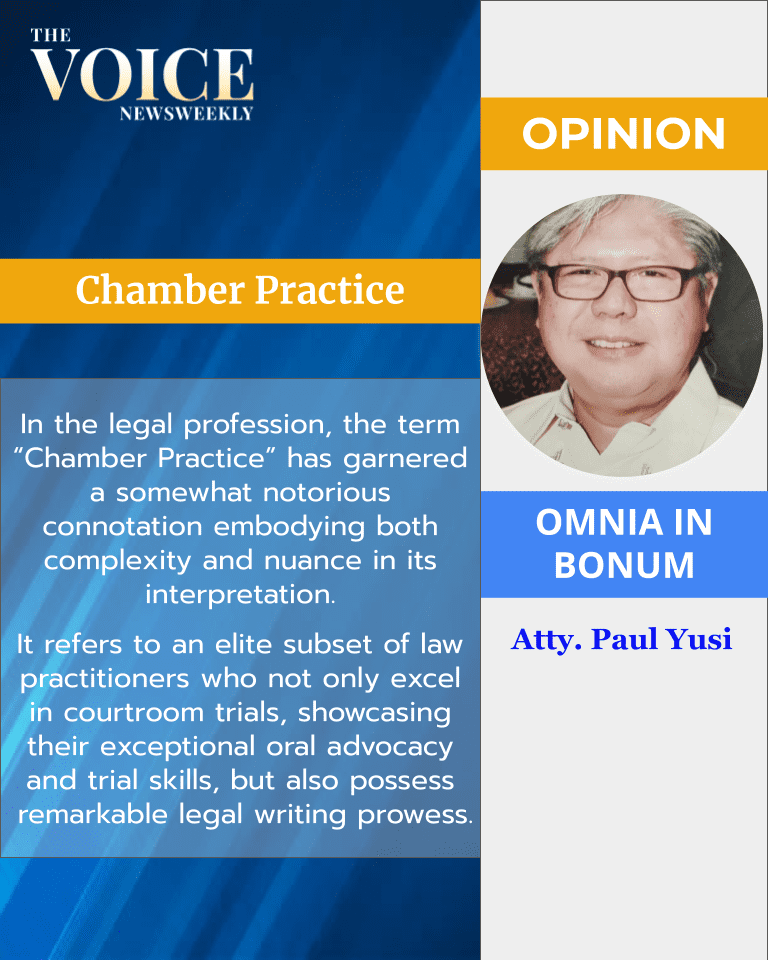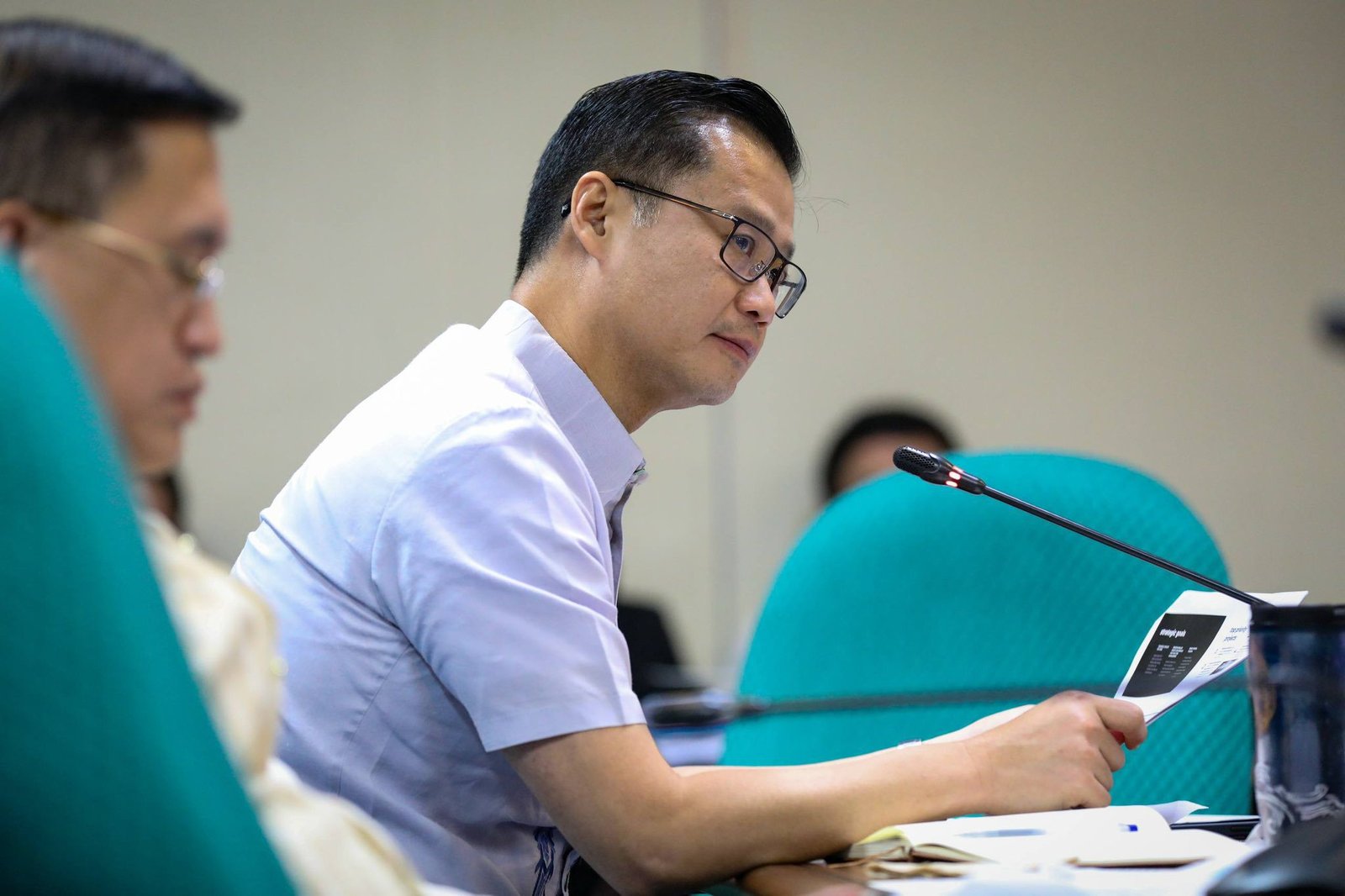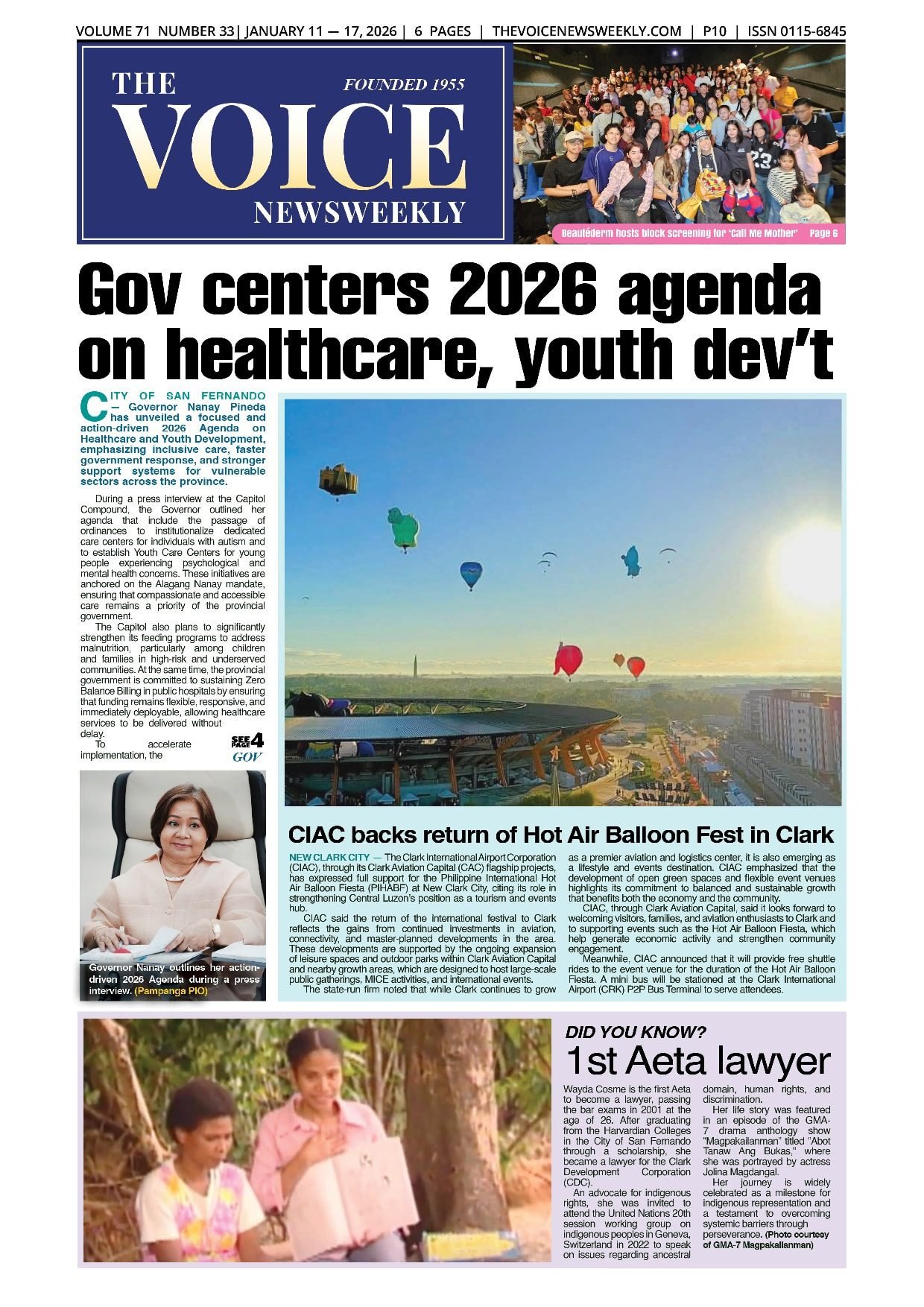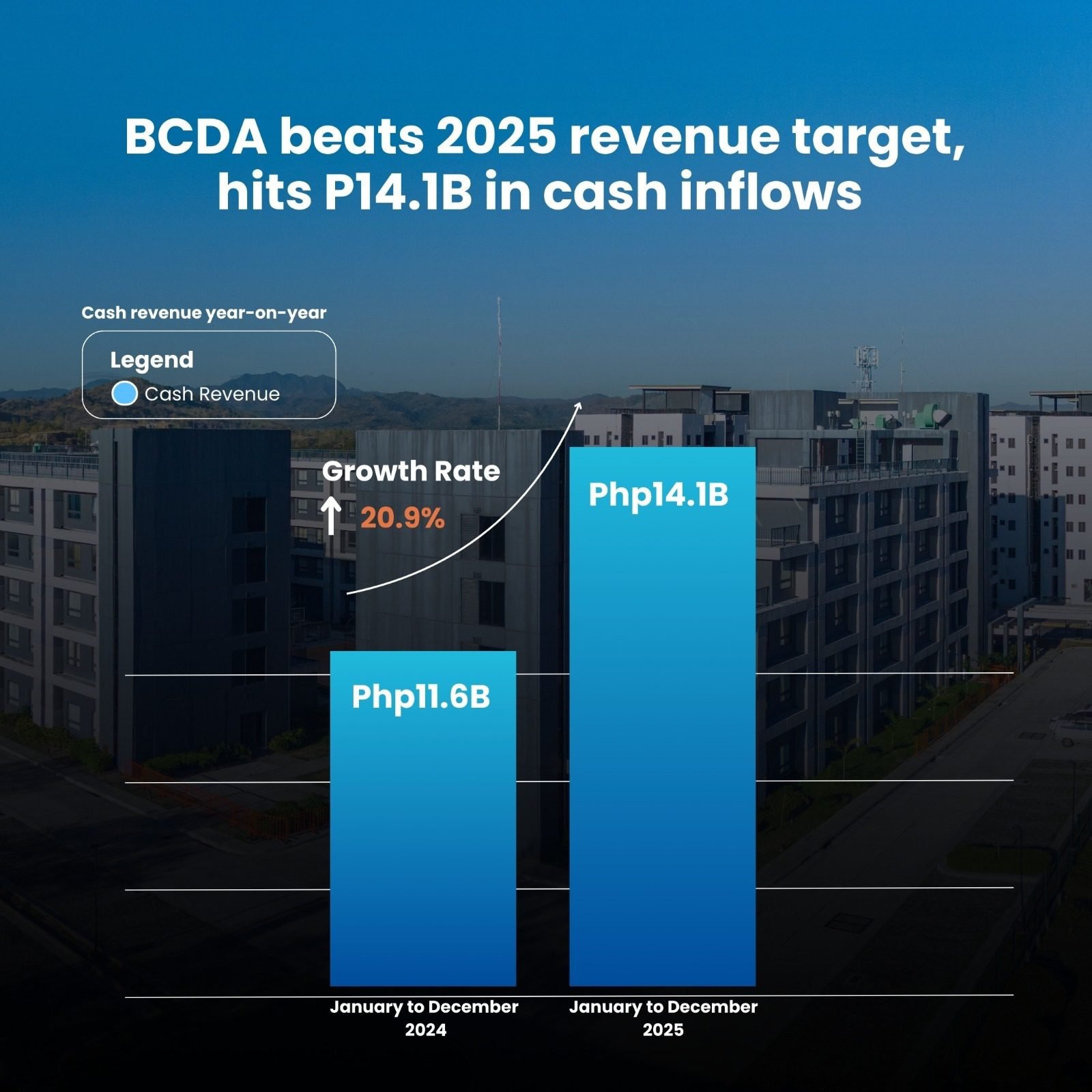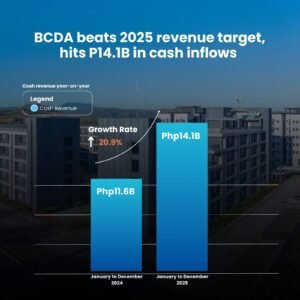𝗢𝗺𝗻𝗶𝗮 𝗜𝗻 𝗕𝗼𝗻𝘂𝗺 𝗯𝘆 𝗔𝘁𝘁𝘆. 𝗣𝗮𝘂𝗹 𝗬𝘂𝘀𝗶
In the legal profession, the term “Chamber Practice” has garnered a somewhat notorious connotation embodying both complexity and nuance in its interpretation.
It refers to an elite subset of law practitioners who not only excel in courtroom trials, showcasing their exceptional oral advocacy and trial skills, but also possess remarkable legal writing prowess.
In addition to these traditional skills, they adeptly navigate the intricate judicial landscape, tirelessly advocating for their clients’ varied causes. This multifaceted role underscores a common adage within the legal community: “it’s not what you know, but who you know.” This phrase highlights the importance of networks and relationships in achieving success within the legal sphere.
A fascinating parallel can be drawn between chamber practice and the burgeoning “Chamber Movement” in the business sector, which finds its roots in the establishment of the very first chamber of commerce in Marseille, founded in 1599.
Over time, throughout Europe and beyond, particularly from the 17th century onwards, various Chambers of Commerce and Industry emerged. These entities were created primarily to consolidate the knowledge of merchants and to form organized bodies dedicated to protecting and promoting the economic interests of their respective cities and regions. Crucially, this movement arose from a desire to act free from self-interest and bias, allowing for a more collective pursuit of economic prosperity.
This foundational mission has enabled Chambers of Commerce to endure, evolve, and thrive, amid numerous political, social, and economic upheavals that have characterized modern history. Depending on the local and regional contexts in which they operate, some Chamber networks are recognized as public law entities, often with governmental ties, while others function under private law frameworks, serving different operational needs and objectives.
In the context of the Philippines, the Philippine Chamber of Commerce and Industry, Inc. (PCCI), recognized under the martial law era Letter of Instruction (LOI) No. 780 as the “sole official representative and voice of the entire business community”, stands out as the leading business chamber in the nation.
Established through the significant merger of various chambers on July 1, 1978, the PCCI has evolved into a vital platform. Today, it serves not only as a hub for business advocacy but also as an essential resource for promoting the interests of Filipino enterprises across diverse sectors. Its ongoing influence and role in shaping business policy reflect the enduring importance of this organization in fostering a robust economic environment in the Philippines.
As businesses navigate challenges in a dynamic marketplace, the PCCI remains at the forefront, championing initiatives that support and empower Filipino entrepreneurs, thereby contributing to overall national growth and development.
In the local scene, the Province of Pampanga boasts a vibrant Chamber Movement as well.
In 1964, 14 years prior to the formal establishment of the PCCI, Mr. Abelardo G. Tinio, inspired by a Japanese friend named Hiroshi Kobayashi, founded the Angeles Chamber of Commerce (ACC). This friendship fostered a sister-chamber relationship with the Chiba City Chamber of Commerce in Japan. The ACC served as the precursor to what is now formally known as the Metro Angeles Chamber of Commerce and Industry, Inc. (MACCII).
In 2002, my late father, Romeo P. Yusi, Sr., later served as the 19th president of MACCII. During his tenure, major Manila-based corporations such as SM and Robinsons, began to focus on Angeles City and Pampanga as their next market, drawn by the Capampangans’ sociable nature and appreciation for quality.
Initially, the influx of these large enterprises faced strong opposition from the Pinoy Gising Ka Movement (PGKM), led by Ruperto Cruz, who argued that local businesses would suffer from diminished market share.
However, over time, this conflict of interests was resolved, leading to a healthy co-existence between local and external businesses, both of which flourished within the same market. This collaboration significantly boosted employment and created numerous income-generating opportunities in our province and city.
Moreover, the progress also led to increased local tax revenues and, unfortunately, traffic challenges similar to those historically seen in Metro Manila.
Currently, MACCII is headed by the multi-talented Ms. Liza Carlos-Timbol who has recently been regularly invited in the lecture circuit even by foreign business chambers in the Philippines.
In 2004, another significant organization emerged: the Pampanga Chamber of Commerce and Industry, Inc., commonly referred to as “PamCham”. This chamber, led by the notable businessman Liberato “Levy” Laus, affectionately known as “LPL”, was supported by the esteemed Renato “Rene” Romero, who later assumed the presidency.
Mr. Romero’s expertise in organizing business chambers was evident as he also played a pivotal role in guiding MACCII when he was its 16th president in 1997. Currently, PamCham is guided by the capable leadership of Jesus “Jess” Nicdao as chairman and Theresa “Terry” David-Carlos as president.
Both PamCham and MACCII share a commendable ability to advocate for sound and sensible economic policies regarding employment, wages, taxes, infrastructure, and good governance. Remarkably, they managed to do so without alienating key stakeholders within national and local governments or their agencies.
Their insights and positions on important policy matters are highly sought after, effectively establishing them as the “Voice of Business” amid the complexities of political maneuvering and the competition for influence among various power brokers. Their presence is vital in driving policy reform and fostering positive change.
Recently, during the 33rd North Luzon Area Business Conference (NLBAC) held in Isabela Province on August 8-9, 2023, Mr. Romero shared his insights in a talk titled “Advocacy and Influence in the Community”.
In his presentation, he emphasized the significance of good governance and the necessity of forming strategic partnerships with Local Government Units (LGUs) and Non-Government Agencies (NGAs).
He concluded his talk with a poignant reminder that “effective business advocacy requires credible leadership and consistent effort; through our engagement in advocacy, we not only uplift our businesses but also contribute to community development and nation-building.”
In sum, this perspective underscores the vital role that business chambers play in shaping a positive future for the good of all.

